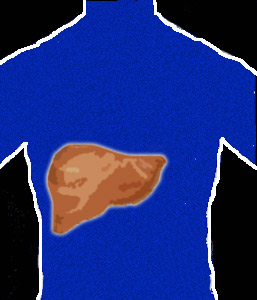
It has been reported that such alcohol-related cirrhosis quietly take place in an individual. However, this potentially fatal disease is usually accompanied by jaundice or internal bleeding. It was also stated that one problem which exists is that some people suffering from alcohol-related cirrhosis usually succumb to their death before they get a chance to abstain from alcohol.
Therefore, this study was believed to have been conducted with the main target of evaluating the results of pathological severity of cirrhosis on the rate of survival of such patients suffering from alcohol-related cirrhosis. For this purpose, the study investigators conducted an analysis on the liver biopsies of about 100 patients. The biopsies of these patients were rated accordingly on the severity of the cirrhosis.
Lead study author, Dr. Nick Sheron, senior lecturer at the University of Southampton states that abstinence from alcohol may play a key role in long-term survival of patients suffering from alcohol-related cirrhosis of the liver. In fact it was discovered that more than the degree of cirrhosis detected in liver biopsy, it was the abstinence from alcohol which was a major deciding factor of the patient’s survival rate. In other words, following their cirrhosis diagnosis, it was the abstinence from alcohol which could determine the survival rate of a patient. It was estimated that such a patient who had given up drinking may have a 7 year survival rate of about 72 percent, as against to the 44 percent survival rate of the ones who had still not given up drinking.
“These findings illustrate the critical significance of stopping alcohol intake in alcohol-related cirrhosis, but unfortunately the services needed to help these patients stay alcohol-free simply do not exist in many parts of the UK,†says Dr. Sheron. “This study clearly confirms the common-sense knowledge amongst hepatologists that the single most important determinant of long-term prognosis in alcohol-induced cirrhosis is for the patient to stop drinking.â€
Dr. Sheron continued by saying that, “At the most simplistic level, the successful management of alcohol-induced liver disease comprises two components; firstly to keep the patient alive long enough for them to stop drinking and secondly to maximize their chances of continued abstinence. A third and vital objective at a public health level is to prevent people developing alcohol-related cirrhosis in the first place. If we are to reduce liver mortality it would seem important to encourage and support patients to stop drinking, and to address the public health aspects of alcohol-related liver disease.â€
Thus, the study investigators have concluded that it is never too late to give up alcohol consumption. Even in the cases of severe degree of alcohol-related cirrhosis on biopsy, abstinence from alcohol may help in improving their survival rate. Another crucial element that was discovered was that the early drinking status of these people could be the deciding factor in verifying the long-term survival of a patient suffering from this disease.
Their findings have been published in the Addiction journal.
